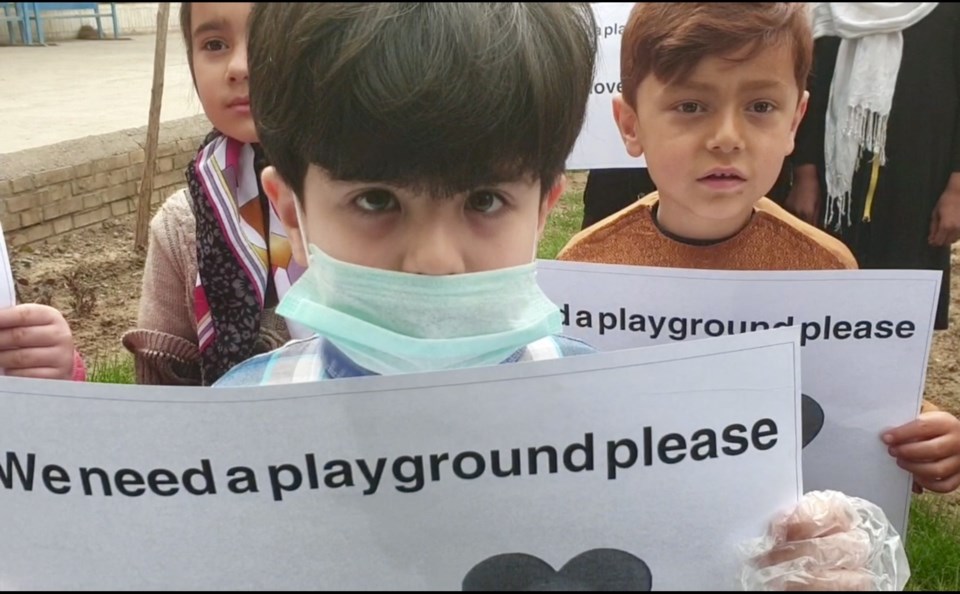Since 2007, Playground Builders has been giving the gift of play to underserved children across the Middle East. But as the COVID-19 pandemic has forced the closure of dozens of playgrounds it helped build, the Whistler-based non-profit has had to shift gears, pivoting from community play zones to toys.
With all but one of its approximately 250 playgrounds in Afghanistan, Palestine and Iraq closed to maintain physical distancing, Playground Builders launched a pilot project on the Gaza Strip that saw volunteers deliver educational toys to every child in 200 homes.
That project proved such a success that the organization just finalized a second pilot project for another 150 homes in Herat Province, Afghanistan, which, at 1,248 confirmed coronavirus cases, has been the second hardest hit province in the country after Kabul, another area Playground Builders operates in.
"So far, it's appearing to be quite successful at face value," Playground Builders founder Keith Reynolds said of the Afghani pilot project. "You just think about it: to educate people about this pandemic and also to give kids a bit of happiness inside their homes where they're supposed to be, that makes total sense to me."
Along with giving kids a much-needed outlet at a time when they are self-isolating away from school and their regular social lives—often in cramped quarters with large family units—Reynolds sees the project as a way to educate families on the proper COVID-19 precautions.
"This is really important, simply because there's a lack of information and media in both these areas we're working in, so it's very important that we have people go, not necessarily door to door, but into these poorer areas where there's no television, limited radio, limited media to get the word out," he explained.
Afghanistan is also facing a significant food shortage as the pandemic has sent prices soaring and forced many breadwinners into unemployment. Save the Children has predicted that a third of the country's 39-million population will not have enough food to get through this month and next.
"One of the comments [I heard] is that, 'We're not going to die of COVID, we're going to die of starvation,'" Reynolds relayed. "So that's going to stress parents out, and we all know that kind of stress in a small room is dispersed, and the kids will be stressed, too. We're hoping happy kids will create happy parents. We've got to keep those kids happy and hopefully it will spin off into happy parents."
With construction at a standstill, the non-profit has been surveying its existing playgrounds to determine what repairs may be needed before distancing measures are lifted and school resumes. Compound that cost with a dip in fundraising that practically every charity has had to contend with during the crisis, and Reynolds admitted the charity would be facing some losses.
"We're not planning on building any new playgrounds right now for the first bit when this thing ends," he noted. "We don't know when it will end, but when it does, we will be renewing the playgrounds that are in existence before they open back up again for school, so that includes replacing some of the swings that literally get worn our, new paint, new ground covers."
In the meantime, however, Reynolds is glad that Playground Builders could remind the communities it serves that "there are still those halfway around the world that care about your people," he said. "We care about your children. That's got to be a gift, when somebody shows up at the door to give your child a present."
Donations to the organization can be made at playgroundbuilders.org/donate.




